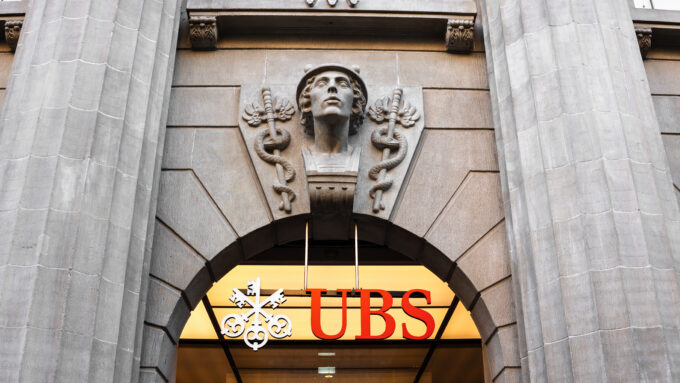
Swiss banking: In search of a secure future
In light of the Swiss Federal government’s report following the Credit Suisse debacle, how can the Swiss banking sector regain its reputation for stability and resilience? ...

by Ludo Van der Heyden, Peter Nathanial Published 6 December 2023 in Finance • 14 min read
On 19 March this year, the Swiss authorities adopted a package of measures that enabled the takeover of Credit Suisse Group (CS) by rival UBS. The Federal Council, the Swiss National Bank (SNB), and the regulatory authority FINMA had concluded that they needed to act to protect the Swiss economy and avert further damage.
The dramatic intervention, held on a Sunday evening, took many by surprise, particularly because many voices had confirmed that CS had sufficient liquidity to weather the storm. It was a sudden and sad end for a global bank.
If we take the governance angle – good governance may be described as maintaining the absence of surprises, and dealing with them directly and decisively when they arise – these issues regularly appeared to be looming for many years and were insufficiently addressed by any party.
The takeover was not simply bad news for CS. It also raised the notion that Swiss governance actors, including government and regulatory authorities, may be less effective than generally thought when invoking the Swiss Financial Centre (SFC). The key question is whether the financial stability of the country – itself the consequence of good governance at the federal and cantonal levels – will continue to extend to the SFC.
This situation has been acknowledged through the constructively critical Report of the Expert Group on Banking Stability 2023, mandated by the Federal Department of Finance and issued on September 1, 2023.
In early June, the Swiss Parliament announced a Parliamentary Inquiry Committee (PIC) that would take 12 to 15 months to investigate the handling of the actions taken by government and regulatory authorities, only the fifth such inquiry in the country’s history.
It is clear that the saga is not over. As the Swiss economic historian Tobias Straumann reminds us, financial markets keep surprising us. CS had escaped the need for government bailouts following the 2007-08 Global Financial Crisis (GFC). Its brutal end confirms the Straumann principle but compounds this acknowledgement by the realization that the Swiss Financial Centre seems not to have learned all the lessons from the GFC, which called for a more systematic oversight by regulatory authorities. This shift was a major cultural change for a Swiss Financial Centre that relied greatly on self-regulation. The Report from the Expert Group on Banking Stability 2023 indeed calls for greater systemic oversight and support by government authorities.

Switzerland has now taken a huge risk and is doubling down on the “too big to fail” doctrine emanating from the GFC advocates creating even more moral hazard. The exceptional financial concentration into UBS puts the entire Swiss economy at risk since total UBS assets now equal 2.5 times Swiss GDP. The financial risk born by the country is not the only risk. CS did not have a monopoly on bad conduct unbecoming of the expectations of the Swiss brand. A short list of recent (post-GFC) examples of UBS’s egregious actions include an intentional tax evasion scheme utilizing bearer bonds probe; a $4.9 billion fine, in February 2019, from a French court for helping French clients evade their taxes – confirmed by the court of appeal; and in June 2014, the Chief Executive of UBS Belgium, Marcel Brühwiler, was arrested on suspicion of fraud, while UBS’ offices and Brühwiler’s residence were searched by police. It is alleged that UBS Belgium actively recruited rich Belgians, proposing to funnel funds to secret Swiss accounts, enabling tax avoidance.
The authorities and the Swiss citizens now need to be assured that UBS has learned from this long list of bad conduct and that it will move away from these illegal and poor practices given the pre-eminent position it has been given by Switzerland. This leads to the bigger question of independence and trust of the Swiss authorities. Were the interests of Swiss citizens sacrificed to the benefit of UBS’s interests? Why, for instance, didn’t the Government insist on a quid pro quo for the tax-payer-backed loss guarantee of CHF 9 billion to UBS as part of the CS rescue operation? And how could the Government agree on the small CHF 3 billion payment for taking over its major and only systemic rival, when its first half 2023 profit approaches CHF 30 billion? With one major banking group now dominating the Swiss market, is the Swiss Financial Center a fair and even playing field?
When recently addressing the general meeting of the Zurich Bankers Association, the new CEO of the Swiss Banking Association (SBA) confirmed “that there is still a lot we do not know and that is why we need a thorough investigation into what happened at Credit Suisse.”. The Parliamentary Inquiry Commission (PIC) will undoubtedly try to answer these questions in the next 12-15 months. But will the world give the SFC this time to regain or maintain its reputation?
Swiss banking history is being played out in front of our eyes. Hence, it seems vital to understand the implications of sentiment, in Switzerland and abroad, of the CS events on the reputation of Switzerland’s financial place.
To start shedding some light on how all these events have affected the image of, and goodwill towards, Switzerland, the SFC, and the banks concerned, we have engaged DMR (DigitalMR), a research organization that uses machine learning and AI, to scan the social media space for unsolicited stakeholder views of Switzerland. It does so by using keywords – like trust, stability, and competence – that serve as the input for the search and tags for checking sentiment on these themes. Such sentiment analysis is becoming a standard tool for early problem recognition and crisis management for major brands and institutions.
Switzerland has now taken a huge risk and is doubling down on the 'too big to fail' doctrine emanating from the GFC advocates creating even more moral hazard.
We see that a big change in Net Sentiment Scores (NSS™) from before the March 19 events to the quarter following them concerns the SFC: from a fully positive score before the CS crisis, sentiment on the SFC has become marginally negative. The limited number of observations before the crisis suggests that SFC was not news to many. The sentiment has now turned, even if not necessarily negative, but suggesting vulnerability. Stakeholders have noted events contributing to a loss of positive sentiment toward the SFC. That by itself deserves tracking going forward.
The Swiss Government lost some points, the SNB gained some. These are not significant changes. However, what cannot be argued, is that the decisive intervention has helped the standing of the Swiss Government.
Sentiment on Swiss market authorities (FINMA) has turned negative. The Swiss National Bank has, albeit marginally, reduced the negative sentiment against it.
Based on these preliminary data, one can conclude that there is an issue around Swiss market authorities, which the Expert Group has indeed identified and started to address.
Turning now to the banks, not all banks were negatively affected by the CS crisis. Raiffeisen even gained favors over the period, while the sentiment on Julius Bear remained unchanged. Swiss banks, except for CS and UBS, have maintained their position or even improved theirs. They appear to have convinced their stakeholders that they were at a good and safe distance from the crisis and that CS and UBS were the main actors, with the Swiss authorities.
The examination of NSS™ dynamics of the two banks directly concerned by the CS takeover provides interesting conclusions.
Unfortunately, the sentiment of both Swiss and foreigners is a negative one. NSSÔ methodology identifies this as connoting a risk factor, and a vulnerability going forward.
Interestingly, the Swiss and foreigners have followed different paths to arrive at their shared negative sentiment. CS had negative ratings entering the crisis, in Switzerland and abroad, underlining its risky position. This sentiment became more pronounced during the crisis and then started to recover, albeit marginally, with its absorption into UBS.
The UBS story is a different one. It already had a negative NSS™ in Switzerland before the crisis. This sentiment initially became less negative – presumably due to its role in rescuing CS. The positive Swiss sentiment, however, disappeared six months after the event. UBS, in Switzerland, is now back where it was 12 months ago. This may be the result of its initial apparent reluctance to bail out CS, or its hard and dominant negotiating position. There is no “white knight” effect. If anything, the contrary.
Worrisome too is that the sentiment abroad has joined the Swiss sentiment, at considerably negative levels. The CS crisis has deteriorated UBS’s sentiment position abroad, with UBS fully absorbing the negative sentiment on CS.
Work ahead thus for UBS, which is now financially larger, but also riskier given the negative NSS™. As has been stated earlier, NSS™ is considered a good predictor of risk. The UBS CEO recently admitted to this through his pointed remarks against the Swiss cantonal banks. His remark that together these cantonal banks presented a greater systemic risk than UBS defies any logic. These banks are guaranteed by their cantons, they largely do not operate abroad, nor do they have big investment banking units. Most importantly, their risks are not concentrated and aggregated in any way. Second, the NSS™ analysis provides one explanation for the outflows of deposits towards these cantonal banks, which the CS takeover will not counter, nor will the CEO’s surprising statements. These comments run counter to recent comments by the Chairman of the SNB who is pleading with customers to be more mobile when considering competitive offers from banks.
The review of the governance and management of the CS crisis by the various authorities triggers a few fundamental questions. What was the plan driving the intervention of the Swiss authorities? If there was a plan, why were more assertive interventions not triggered, and earlier, even with their limited hard powers? Interventions at board and governance levels (e.g., by prompting a change in the Chairman) can be rapid and swift; but all interventions appeared at best timid, if not absent altogether. How, for example, did the Swiss authorities allow the hiring by CS of a CEO from the insurance industry (a sector we consider related but distinct from banking), when the two senior-most leaders of the company were not banking experts either the Chairman was a lawyer, and the Vice Chairman was a full-time CEO of a pharmaceuticals company)? Why didn’t the authorities ask for changes to the CS business model and why didn’t they develop a toolkit for handling them?

If interventions were that diffident, what does that say about the Swiss authorities and their supervisory capabilities? Was CS truly in much worse shape than we were led to believe at the time of its government-led rescue? Why were some of the healthier pieces of CS such as wealth management, Swiss retail, and corporate lending not rapidly spun off at the time of the takeover announcement? Wouldn’t this have been better for the Swiss Financial Centre, for Swiss citizens, and for the reputation of Switzerland?
Why are Swiss authorities allowing the concentration of so much financial risk in a single institution in which they have all the upside, and the Swiss taxpayer has the downside? Why is UBS being allowed to build a monopoly in Switzerland as the only truly international big or systemic bank? Why did the Swiss government burden Swiss citizens with such risks and provide UBS with an asymmetric equation, in which they have all the upside, and the Swiss taxpayer has the downside?
These questions only lead to doubts about the true effectiveness of the Swiss regulatory framework. And how will these authorities supervise UBS, the juggernaut of Swiss banking? How will they avoid the “revolving door” issue whereby former CS and UBS executives will be tasked with supervising their former employer? Should the Swiss authorities be considering closer cooperation between its supervisory duties and those in the EU, namely the Single Supervisory Mechanism (SSM)? The latter is part of the European Central Bank and is building much greater competencies in the supervision of globally systemic and complex banks than Switzerland might ever aim to possess.
In fact, FINMA could be seen as a leader in the supervisory world by proposing transparent standards, not dissimilar to those required by the EU’s Single Supervisory Mechanism (SSM) for bank boards of directors about the composition, credentials, and no-conflicts of board members, by not appointing anyone that has worked for UBS or CS on its own board. This would help to avoid either a “pro-UBS” bias or even a perception of such bias. It is a step that could be taken immediately. And shouldn’t Swiss authorities now be looking at rebranding their own dedicated agencies, immediately giving them greater enforcement powers and discretion to supervise deposit-taking institutions?
A larger question remains. It concerns the period of uncertainty surrounding CS, the banking regulator, Swiss banking, and by extension the entire Swiss Financial Centre, which appears to continue and will affect them all, until, perhaps, 12 months from now, when PIC will announce its evaluation of the crisis. Every day a clear plan is not announced makes it harder to restore the Swiss brand and image and increases the time taken until any restoration can take place.
A parallel here with the current situation of the UK might be useful: the Brexit disaster was the consequence of many converging factors. One – and we would argue a major one – was the result of the UK not having had an effective discussion and a clear conclusion on its economic model following the GFC. Indeed, the GFC brought an end to the country’s service-led economic model implemented as part of the Thatcher Revolution. Instead of engaging in such strategic and vital debate for the country, the UK authorities left a population divided along socioeconomic and geographical lines, with disenfranchised segments, unable to see a longer-term way out. The Brexit referendum became a convenient and populist cover to hide the absence of a serious debate on the UK’s future, with or without the EU. Brexit was a wasted opportunity to openly discuss and devise a new UK economic model post-GFC, something that should have been done following the 2008/09 crisis. Good and responsible national governance would have triggered such a debate and acknowledged its need.
The question then becomes, why key questions in the CS crisis were not answered when they could have been answered? And, when they were answered, why were they answered in rather unexpected ways? Are things on track – and if so, where are those tracks leading us? If things are not on track, it would be better to admit this early and start preparing the discussion on what tracks ought to be laid. The PIC report will provide a great moment to have this debate. More than a year of study until publication might be considered acceptable in conservative Switzerland. In the world’s financial places, this is likely to be considered a bureaucratic response, hoping the problem will move away and that no major change is needed. By itself, this conclusion suggests there is no crisis, and that things are in control. The Expert Group on Banking Stability 2023 has, with its report, publicly contradicted this conclusion. People in Switzerland and abroad who have a stake in the Swiss Financial Centre expect answers.
Today’s world moves rapidly and is full of surprises. The DNA of the Swiss is to move slowly, conservatively, and in a reasoned way. It has served them well in slow-moving times. The difference between these two worlds already led the Swiss government and banking authorities to be surprised when US authorities forced Switzerland to give up its bank secrecy practices for non-fiscal residents. This lesson should be retained.
A major risk is that the Swiss underestimate, are complacent, or are overly optimistic about how the world is looking at them, insufficiently conscious of how sentiment may be turning against the SFC. The world is expecting measures to be taken, or at least announced, not 12 or 18 months from now.
Our analysis of stakeholder sentiment in Switzerland and around the world is early confirmation that the Swiss Financial Centre has not benefitted from the CS crisis, to say the least. This is something that warrants ongoing monitoring.
UBS fares poorly in the sentiment analysis, even though it has benefited financially and gained a near monopolistic position in the Swiss market. Interestingly, its previous position – and that of CS – was to provide domestic banking services covered by bank secrecy (a unique offer) to foreign customers from anywhere in the world. Without banking secrecy, UBS’s competitiveness with foreign customers from advanced economies relies nearly exclusively on providing superior banking services, domestically and abroad. A multi-cultural and educated workforce, with a stable legal and political system as context, are the foundations for this competitiveness, as well as the fact that – according to the Swiss government – 25% of total cross-border assets are managed in Switzerland.
The SFC now needs to deal with two major governance issues: can the Swiss authorities, particularly its regulatory authority (FINMA), recover from its relative inaction and absence of early intervention on the CS downfall, and how will it convince the Swiss and the world that while it may have been late to react last time around, it will have built the capability to more readily anticipate and intervene next time around, when the stakes will be even greater, for Switzerland and for the global financial system?
A third hit, following the GFC and the recent CS crisis, risks being fatal.

IMD Distinguished Scholar & INSEAD Emeritus Chaired Professor in Corporate Governance
Ludo Van der Heyden became a Distinguished Scholar at IMD in September 2022, where, together with Professor Salvatore Cantale and Executive in Residence Peter Nathanial, he supports IMD’s developmental activities and programs in the banking sector, including the Bank Governance program. Ludo is the founding Academic Director of INSEAD’s Corporate Governance Centre (ICGC) and was co-Dean of INSEAD (1990-1995).

IMD Executive in Residence and former member of the Executive Committee of The Royal Bank of Scotland Group
Peter Nathanial is an IMD Executive in Residence and co-founder and co-Director of IMD’s Bank Governance Program. A Former Group Chief Risk Officer and member of the Executive Committee of The Royal Bank of Scotland Group, he is a Former Global Head of Risk Oversight at Citigroup.

19 July 2024 • by Peter Nathanial, Ludo Van der Heyden, Salvatore Cantale in Finance
In light of the Swiss Federal government’s report following the Credit Suisse debacle, how can the Swiss banking sector regain its reputation for stability and resilience? ...

17 July 2024 • by Michael R. Wade, Evangelos Syrigos in Finance
Companies that excel in both digital and sustainable transformation attract a stock market premium, according to research. So, how do you tap into that value? ...

10 July 2024 • by Michael Skapinker in Finance
A rise in climate change protests against leading arts institutions spells trouble for the future of corporate sponsorship. Companies and cultural organizations must learn to manage the risks....

8 July 2024 • by Richard Baldwin in Finance
As the world’s largest democracy prepares to overtake China in terms of economic growth, it offers a huge investment opportunity, explains IMD’s Richard Baldwin....
Explore first person business intelligence from top minds curated for a global executive audience